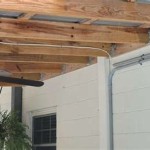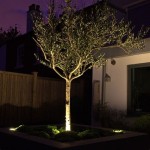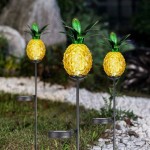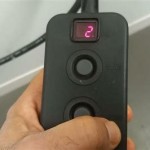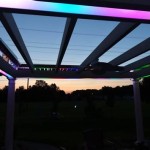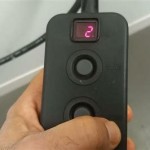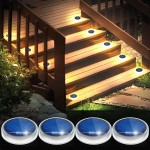Essential Aspects of Installing Outdoor LED Light Strips
Installing outdoor LED light strips requires careful consideration of various aspects to ensure optimal performance and longevity. Understanding the essential elements involved in the installation process is crucial for a successful and efficient outcome.
This article delves into the key aspects of installing outdoor LED light strips, providing insights and guidance on each aspect. By following these guidelines, you can ensure a seamless and effective installation, maximizing the benefits and aesthetics of your outdoor lighting.
1. Choosing the Right LED Light Strips
Selecting the appropriate LED light strips is vital for your outdoor installation. Consider the following factors when making your choice:
- Brightness: Determine the desired brightness level for your application.
- Color: Choose from a range of colors to suit your aesthetic preferences.
- IP Rating: Opt for strips with a high IP rating (Ingress Protection) to withstand outdoor conditions.
- Length: Measure the area where the strips will be installed to determine the required length.
2. Preparing the Installation Surface
Before installing the LED light strips, it's essential to prepare the surface:
- Clean the surface to remove dirt and debris.
- Ensure the surface is level and free of obstacles.
- Consider using a primer or adhesive promoter for optimal adhesion.
3. Planning the Layout
Plan the layout of the LED light strips carefully to achieve the desired effect:
- Measure and mark the placement of the strips on the surface.
- Use tape or chalk to outline the intended route of the strips.
- Consider the spacing between the strips for even illumination.
4. Installing the LED Light Strips
Follow these steps for proper installation of the LED light strips:
- Peel the backing off the adhesive tape on the back of the strips.
- Carefully press the strips onto the prepared surface.
- Ensure the strips are firmly attached and aligned correctly.
- Use clips or screws to secure the strips further if necessary.
5. Wiring and Power Supply
Connect the LED light strips to a power source using the appropriate wiring and components:
- Use wire connectors to join the strips together.
- Connect the wires to a suitable power supply, such as a transformer.
- Ensure the power supply matches the voltage and amperage requirements of the LED strips.
6. Testing and Troubleshooting
After installation, test the LED light strips to ensure they are functioning correctly:
- Turn on the power supply and check if the strips light up.
- Inspect the connections and wiring for any loose or damaged components.
- If any issues arise, troubleshoot by checking the power supply, connections, and strips themselves.
Conclusion
Installing outdoor LED light strips involves a systematic approach that encompasses selecting the right strips, preparing the surface, planning the layout, installing the strips, wiring and power supply, and testing and troubleshooting. By incorporating these essential aspects into your installation process, you can create a vibrant and functional outdoor lighting system that enhances the ambiance and safety of your outdoor space.

The Complete Guide To Outdoor Led Strip Lights Lighting Access

The Complete Guide To Outdoor Led Strip Lights Lighting Access

7 Things To Know Before And Installing 12v Led Strip Lights

Installing Led Strip Lights Adhesive Or Mounting Clip

How To Install Led Strip Lights Connect Light

Led Strip Light Installation Guide

120v Led Light Strips Long Run For Indoors And Out Ledsupply Blog

How To Choose And Install Led Garden Lights
Diy Led Accent Lights For Your Home A Step By Guide Vcloudinfo

Cabled 6 Indoor Outdoor Led Lighting Kit

